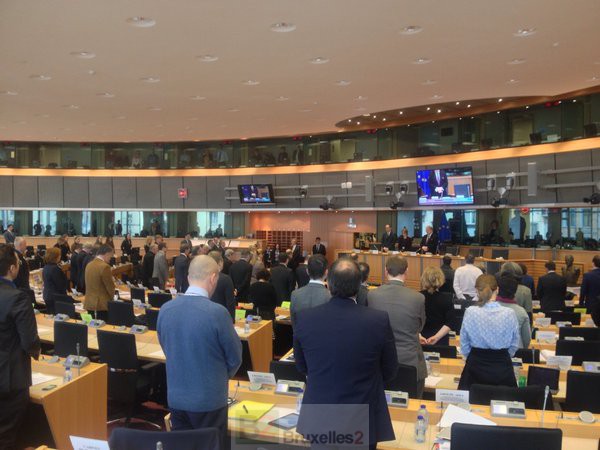“Frustrated” MEPs desperately demand (re)active High Representative
MEPs were expecting Maciej Popowski, on a firm footing, on Tuesday at the European Parliament's Defense sub-committee, to discuss the European response to the conflict in Libya. The Deputy Secretary General of the Diplomatic Service, in charge of the CFSP, had the delicate task of defending the policy followed until now by the High Representative. Policy that he has defined according to his three directions: 1° EU action for the evacuation of citizens and humanitarian aid, 2° "prudent" ongoing planning on military options, 3° medium-term assistance from the countries of the region in terms of the rule of law, justice, the police or the reform of security structures. And financial sanctions, which “ are beginning to have an effect if media reports are to be believed.", he said.
The High Representative reflects the will (or not) of the Member States
Mr. Popowski defended the European Union's record by highlighting the constraints it faced: “ There is no unanimity to authorize strong action. There is no consensus for a new resolution. (...) We don't have an integrated military structure. Each State decides on the resources it wishes to mobilize. There is no headquarters " But he also wanted to recall the doctrine of the High Representative: " It must reflect the will of the Member States. We reflect their expectations. And the lowest denominator is the result. "As for proper action by the EU, " different options are being considered, including an arms embargo...” But if there is “robust” action it would be done in NATO »
Needless to say, not all MEPs were
very happy with this somewhat euphoric presentation!
Why is Europe not acting?
« I feel a certain frustration listening to you. We talk about careful planning, medium and long term, while for Libya we are more in the emergency explained Arnaud Danjean (UMP/EPP, France): All our citizens tell us: what is Europe doing? If I answer them "careful planning", I'm screwed". And the chairman of the sub-committee to ask " Why is the European Union unable to plan a maritime operation a few kilometers from these coasts? While we managed to carry out a maritime, anti-piracy operation, thousands of kilometers away? »
Operation: cleaning up in Benghazi
« We have to know what to do now. In a few days, there may be no more opposition to support. We will have a bloodbath in Benghazi. If we wait too long, we will have to wait for the next wave of opponents exclaimed Franziska Katharina Branter (Greens, Germany). “Preparing to act does not mean acting. We've said “Never again” in the past. When Gaddafi has taken Benghazi and cleaned up the region, how will we be able to say "never again" added the former Lithuanian president, Vytautas Landsbergis (EPP, Lithuania), who has rarely been known about the positions of the German Green Party.
A certain European impotence
In fact, “You get the impression that Lady Ashton doesn't want to have (military) options. She should see her role in a different light. (...) I also have the impression that the countries of the European Union do not agree where the Arab League has taken its responsibilities and asked for the necessary measures for a no-fly zone. What more do you need? Will the EU hide behind the African Union and do nothing? » commented Michael Gahler (CSU-CDU/EPP, Germany)
« The reports show the impotence and inability to act and sometimes the total destitution of the EU in this difficult situation. This is not what was expected of the foreign service. The condition of the Arab League agreement is now fulfilled. What we see is the European Union's lack of will to act added his Austrian counterpart, Ernst Strasser (EPP, Austria), former Minister of the Interior in the first Schlüssel government.
Let's stay cautious
“Remember the past, Afghanistan, Iraq or Kosovo, Europe should learn the lessons of the past. You can't shoot first and look at the facts later. however warned Sabine Lösing (GUE, Germany) before asking the question “Libyan refugees who could arrive from Libya, are we turning them back? Or we organize »
Roberto Gualtieri (S&D, Italy) went to the front to defend the High Representative. " HR's caution is justified. We don't know the hard facts. How many deaths are there? Are there two armies fighting each other? (...) Libya is a complex country with 3 tribes that have signed a pact he clarified. " And the unity of these tribes could be done if a unilateral intervention to support those of Benghazi. » And to suggest: a political initiative ". " Turkey must not be left to act alone. We must speak with the African Union to implement the funding freeze”.


Comments closed.